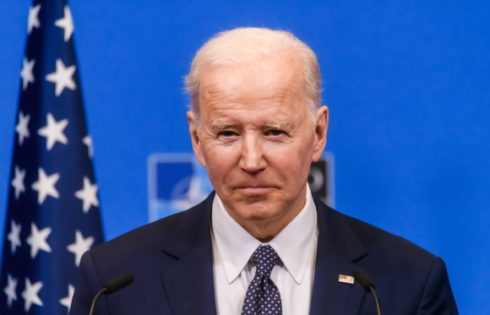
Last week, a federal judge in Iowa struck a blow for Constitutional freedom when she told the University of Iowa it had no right to single out a campus Christian group to force it to accept leaders who didn’t share the group’s values and beliefs.
Judge Stephanie Rose of the United States District Court for the Southern District of Iowa ruled the university’s policy of favoring certain groups over others violated the Business Leaders in Christ’s rights to speech and assembly guaranteed by the First Amendment.
Leading up to the lawsuit, a gay student sought to join the religious group’s leadership team but was told his pro-homosexuality views were incompatible with the mission of the organization. BLinC believes homosexual relationships are “outside of God’s design” and that “every person should embrace, not reject, their God-given sex.”
University administrators claimed the student was denied a leadership position because of his status as a gay man, and the group was therefore in violation of the school’s nondiscrimination policy; BLinC countered it was his views on sexual relationships that conflicted with their fundamental beliefs, and other groups on campus were granted the freedom to exclude applicants despite their membership in a “protected” class.
Even after BLinC amended its constitution, it was deregistered as an official campus group. In December of 2017, the group filed a lawsuit against the university.
Shortly after their complaint was filed, Judge Rose ordered the university to immediately reinstate BLinC on campus, noting the group should be given the same rights as Imam Mahdi, a Muslim organization on campus. Rose noted that in order to gain full membership to the Muslim group, one had to be a “Muslim, Shiea, who respects the religion rules, and willing to practice the faith.” Rose noted these same standards should apply to Christian religious groups on campus.
Losing First Amendment freedoms “for even minimal periods of time” constitutes “irreparable harm,” Rose said last January.
The Iowa case is just the latest example of campus religious groups pushing back against universities trying to micromanage the makeup of their leadership teams. In November 2018, Christian apologetic group Ratio Christi filed a similar complaint against the University of Colorado, Colorado Springs, whose officials had objected to the group’s policy requiring officers adhere to their religious beliefs. Campus officials sought changes that would force Ratio Christi to accept leaders whose personal views may have run counter to the group’s goals.
In their complaint, Ratio Christi noted the CU Colorado Springs hosts 270 recognized student organizations, including some that explicitly profess political missions that run counter to Ratio Christi’s. Among these groups are the Trans Student Union, the College Democrats, and the Young Democratic Socialists of America. Under the Trans Student Union’s rules, a member of the group can be removed for any comment deemed “transphobic.”
Being officially recognized by a university brings with it a host of benefits to an organization. Typically, registered groups are granted access to student fees, space in campus buildings, and tax benefits. In federal court cases dating back over four decades, students have challenged university policies that force them to pay mandatory fees to fund groups with which they disagree.
In more recent cases, the U.S. Supreme Court has ruled that denying funding to groups based on their message constitutes impermissible “viewpoint discrimination.” Further, the court has ruled student fees must be distributed on a “viewpoint neutral” basis; failing to recognize a campus group based on, for example, religious affiliation is a clear violation of an organization’s First Amendment protections.
But this latest slate of cases has unmasked a new way universities have tried to delegitimize religion on campus – by deeming their fundamental views “discriminatory.”
In BLinC’s case, University of Iowa faculty deemed them noncompliant with the school’s anti-discrimination policy; but BLinC says it was the group that was, in fact, being discriminated against. The organization’s lawyers released a list of over 600 groups on campus, and according to their complaint, the only campus groups found noncompliant were those with religious missions.
In fact, there were a number of groups on the Iowa campus that excluded individuals based on their “protected classification,” but were still granted official university registration. According to last Wednesday’s court decision, these organizations include Love Works, which requires leaders to sign a “gay-affirming statement of Christian faith,” House of Lorde, which interviews prospective members to maintain “a space for Black Queer individuals and/or the support thereof,” the Chinese Students and Scholars Association, which limits membership to “enrolled Chinese Students and Scholars,” and Hawkapellas, an “all-female a cappella group.”
The defendants in the Iowa case concede that these groups may violate the school’s Human Rights Policy “for reasons which support the University’s educational mission” and the “social purposes of the forum.” They note that some of the groups in question “provide safe spaces for minorities which have historically been the victims of discrimination.”
But university administrators deciding capriciously which groups get formal recognition based on their message violates the principle of viewpoint neutrality. Judge Rose properly recognized the danger in allowing some groups to steer clear of the nondiscrimination policy but not others.
“Although facially neutral, the Human Rights Policy is not neutrally applied,” she said in her decision. “BLinC was prevented from expressing its viewpoints on protected characteristics while other student groups ‘espousing another viewpoint [were] permitted to do so,’” she said, citing a previous case.
“When free speech is involved, the uneven application of any policy risks the most exacting standard of judicial scrutiny, which Defendants have failed to withstand,” Judge Rose wrote. Yet this uneven application of nondiscrimination policies is currently being used against other religious groups on campuses across America.
Future judges should recognize this new tactic for what it is – when it comes to campus Christians, nondiscrimination policies have become a sword, not a shield.
MORE: Court rules that University of Iowa must give religious groups equal treatment
Like The College Fix on Facebook / Follow us on Twitter






Please join the conversation about our stories on Facebook, Twitter, Instagram, Reddit, MeWe, Rumble, Gab, Minds and Gettr.